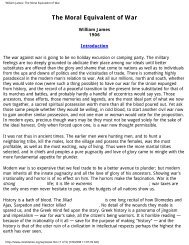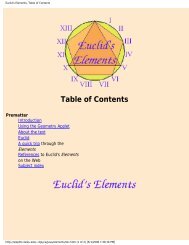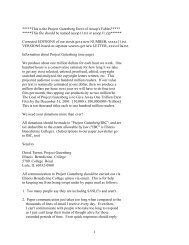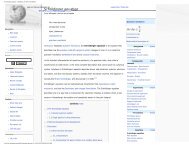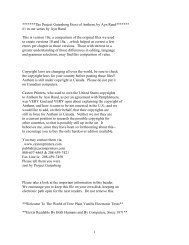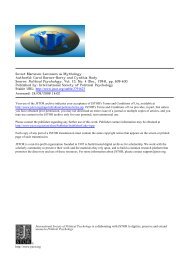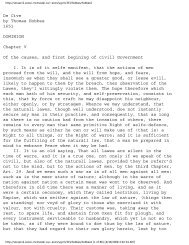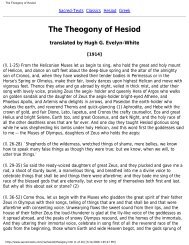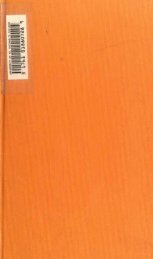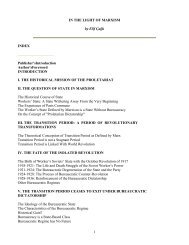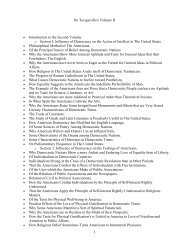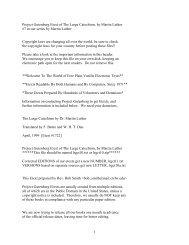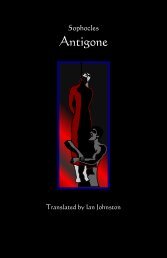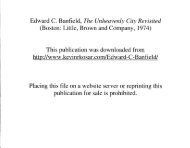Thomas Jefferson: A Manual of Parliamentary Practice
Thomas Jefferson: A Manual of Parliamentary Practice
Thomas Jefferson: A Manual of Parliamentary Practice
Create successful ePaper yourself
Turn your PDF publications into a flip-book with our unique Google optimized e-Paper software.
<strong>Thomas</strong> <strong>Jefferson</strong>: A <strong>Manual</strong> <strong>of</strong> <strong>Parliamentary</strong> <strong>Practice</strong><br />
indicted <strong>of</strong> felony, or the like crime. 23. El. 1580. D'Ewes. 283. col. 1. Lex. Parl. 133.<br />
When it is found necessary for the public service to put a member under arrest, or when, on<br />
any public enquiry, matter comes out which may lead to affect the person <strong>of</strong> a member, it is<br />
the practice immediately to acquaint the House, that they may know the reasons for such a<br />
proceeding, and take such steps as they think proper. 2. Hats. 259. Of which see many<br />
examples. Ib. 256. 257. 258. But the communication is subsequent to the arrest. 1. Blackst.<br />
167.<br />
It is highly expedient, says Hatsell, for the due preservation <strong>of</strong> the privileges <strong>of</strong> the separate<br />
branches <strong>of</strong> the legislature, that neither should encroach on the other, or interfere in any<br />
matter depending before them, so as to preclude, or even influence that freedom <strong>of</strong> debate,<br />
which is essential to a free council. They are therefore not to take notice <strong>of</strong> any bills or other<br />
matters depending, or <strong>of</strong> votes that have been given, or <strong>of</strong> speeches which have been held, by<br />
the members <strong>of</strong> either <strong>of</strong> the other branches <strong>of</strong> the legislature, until the same have been<br />
communicated to them in the usual parliamentary manner. 2. Hats. 252. 4. Inst. 15. Seld.<br />
Jud. 53. Thus the king's taking notice <strong>of</strong> the bill for suppressing soldiers, depending before<br />
the House, his proposing a provisional clause for a bill before it was presented to him by the<br />
two Houses; his expressing displeasure against some persons for matters moved in Parliament<br />
during the debate and preparation <strong>of</strong> a bill, were breaches <strong>of</strong> privilege. 2. Nalson, 743. and in<br />
1783, December 17, it was declared a breach <strong>of</strong> fundamental privileges, &c. to report any<br />
opinion or pretended opinion <strong>of</strong> the king on any bill or proceeding depending in either House<br />
<strong>of</strong> Parliament, with a view to influence the votes <strong>of</strong> the members. 2. Hats. 251, 6.<br />
SEC. IV.<br />
ELECTIONS.<br />
THE times, places, and manner <strong>of</strong> holding elections for Senators and<br />
Representatives, shall be prescribed in each state by the legislature there<strong>of</strong>; but<br />
the Congress may, at any time, by law, make or alter such regulations, except as to<br />
the places <strong>of</strong> chusing Senators. Constitution I. 4.<br />
Each House shall be the judge <strong>of</strong> the elections, returns, and qualifications <strong>of</strong> its<br />
own members. Constitution I. 5.<br />
SEC. V.<br />
QUALIFICATIONS.<br />
THE Senate <strong>of</strong> the United States shall be composed <strong>of</strong> two Senators from each<br />
state, chosen by the legislature there<strong>of</strong>, for six years, and each Senator shall have<br />
one vote.<br />
http://www.constitution.org/tj/tj-mpp.htm (10 <strong>of</strong> 70) [4/14/2008 6:37:46 PM]



